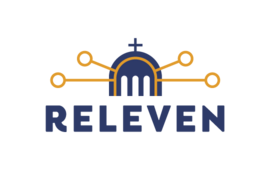Tara Andrews
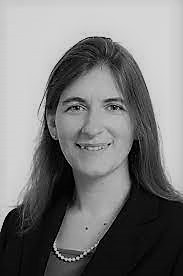
Tara Andrews
Tara Andrews is the principal investigator of RELEVEN. She became University Professor of Digital Humanities at the Institute for History in 2016. She has also served as a Scientific Director of the Austrian Centre for Digital Humanities and Cultural Heritage (ACDH-CH) at the ÖAW since 2018. With a Bachelor of Science in Humanities and Engineering from the Massachusetts Institute of Technology (1999), and the degrees of Master (2005) and Doctor (2009) of Philosophy in Byzantine and Armenian studies from the University of Oxford, her dual scientific training as well as her professional experience in the software industry has provided valuable and rare perspectives on the use of digital and computational methods in humanities domains. Andrews’ fields of expertise include the history and historiography of the Christian Near East in the tenth to twelfth centuries, the application of computational and statistical methods for reconstruction of the copying history of ancient and medieval manuscripts (stemmatology), and reflection on the implications of employing digital media and computational methods in humanities contexts. She has been invited to give keynote presentations at both academic and industry conferences, has contributed to both the Armenian-source content and the technical maintenance of the online “Prosopography of the Byzantine World”, has edited or co-edited two collections of papers on the subject of software and computational analysis in textual studies, and has published several journal articles as well as a monograph on topics that cover both medieval Armenian history and digital scholarly practice. Her scientific output also extends to research software, most notably the ‘Stemmaweb’ suite of online tools for analysis of text variants and their associated stemma hypotheses, but also including a range of smaller tools whose source code has been released to the public on Github. From 2021–2026 she will be PI of the ERC project RELEVEN, aiming to bring a new perspective to the history of the eleventh century in the Christian world by digitally re-modeling the data we have.
Nina Richards
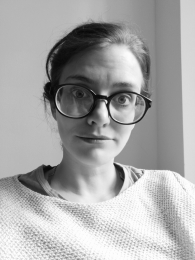
Nina Richards
Nina Richards is an archaeologist and anthropologist with a focus on early and high middle ages. Furthermore, she has been involved in the digital humanities projects THANADOS and OpenAtlas. With her archaeological expertise regarding 11th century Austria and neighboring countries, she provides support in mapping data and implementing archaeological features.
Katalin Prajda
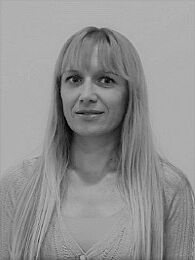
Katalin Prajda
Twitter / academia / Google Scholar
Katalin Prajda is a historian of medieval and early Renaissance Italy, who has held a number of postdoctoral fellowships, among others at the University of Chicago, the Villa I Tatti - The Harvard Center for Renaissance Studies, Central European University and the Hungarian Academy of Sciences. Her studies concern the coevolution of trade, political, kinship, and artistic networks, with a focus on migration and cultural exchanges. In the framework of the project, she is working on the re-evaluation of the history of Trieste and Istria as borderlands.
Márton Rózsa

Márton Rózsa
Martón Rózsa is a historian with a special interest in the social history of Byzantium in the eleventh and twelfth century. He completed his doctoral studies at Eötvös Loránd University, Budapest, in 2019 and wrote his dissertation about the Byzantine second-tier elite in the "long" twelfth century (1081-1204). He held a number of predoctoral and postdoctoral fellowships at Ludwig Maximilian University, Munich, and the University of Vienna. He also attended the Numismatics and Sigillography Summer Program at Dumbarton Oaks in 2015. In the framework of RELEVEN he focuses on the changes of the Byzantine elite and the correlations between politics and the mobility of people in Central Europe.
Lewis Read

Lewis Read
Lewis Read completed his undergraduate degree in Medieval History at the University of St Andrews in 2019 and remained in St Andrews to study for an MLitt in Middle Eastern History and Arabic, which he completed in 2020. Lewis’ research specialises in medieval Armenia from the fifth to eleventh century and explores the use of digital tools for the study of Armenian manuscripts.
Lewis is currently a doctoral candidate at the University of Vienna and one of our project research assistants on RELEVEN with responsibility for Armenian source material. Working with Armenian manuscript colophons from the eleventh century, his PhD thesis examines Armenian-Byzantine relations between 1071 and 1095. As part of his doctoral research, Lewis is also working on a digital edition of eleventh-century Armenian colophons.
Aleksandar Anđelović
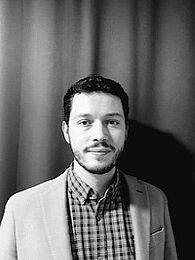
Aleksandar Anđelović
Aleksandar Anđelović is a classical philologist and medievalist with a broad interest in education, religion, reception of paideia and of the Bible in the late antique and Byzantine eastern Mediterranean. He received his BA and first MA degree in Classics from the University of Belgrade in 2016 and 2018 respectively. In 2021 he graduated from the Department of Medieval Studies at the Central European University in Budapest and Vienna, with a MA thesis investigating the two late antique Latin translations of the Greek Life of Antony. At CEU he also received an Advanced Certificate from the Center of Religious Studies. He studied Modern Greek in Athens and Thessaloniki, and has actively participated in conferences in Croatia, North Macedonia, and Slovenia.
Aleksandar is one of our two prae doc researchers on RELEVEN. His PhD thesis will aim to offer a thorough investigation of the role of learning and education, both secular and religious, as perceived by prominent Christian intellectuals and ecclesiastical leaders in eleventh-century Byzantium.
Lale Tüver
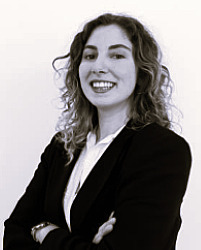
Lale Tüver
Lale Tüver is the administrative co-ordinator of the Releven project.
She holds a Bachelor degree in English and American Studies from the University of Vienna. Her BA studies focused on corpus linguistics, cultural and literature studies. She is currently enrolled in the Master's program of Digital Humanities at the same university. Her academic interests involve textual analysis, natural language processing, digitization and management of historical data.
Lukas Plank

Lukas Plank
Lukas Plank works as a Python developer at ACDH-CH and focuses on Linked Open Data and Knowledge Graph computing. He holds a Master degree in German Philology from the University of Vienna and his academic interests include Computational Philology, Scholarly Editing and Semantic Modelling.
Former Team Members
Carla Ebel
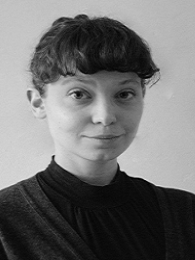
Carla Ebel
Carla Ebel was a Data Analyst in the RELEVEN research project.
She has a Bachelor's degree in European Art History and Religious Studies from the University of Heidelberg. Her BA studies focused on modern and contemporary art history, European history of religion and museology. She has additional qualifications in gender studies and cultural studies from the University of Vienna. Since October 2019, she has been enrolled in the MA program Digital Humanities at the University of Graz (Institute Centre for Information Modelling).
Carla Ebel worked in the field of archive for Maria Lassnig Foundation in Vienna and University of Heidelberg. Her interests in Digital Humanities are semantic web technologies, data modeling and various aspects of digital art history and museology. She is also a team member in the Horizon2020 InTaVia research project at ACDH-CH.
Marin Deierl

Marin Deierl
Marin was responsible for the coordination and administration of the project between 2021 and 2023. They hold a BA degree in social anthropology from LMU Munich and are enrolled in the same MA programme at the University of Vienna. Their main focuses are urban and environmental anthropology in Romania and other parts of the Balkans. During the research for their master thesis they observe the social implications of gardening projects in Vienna.

